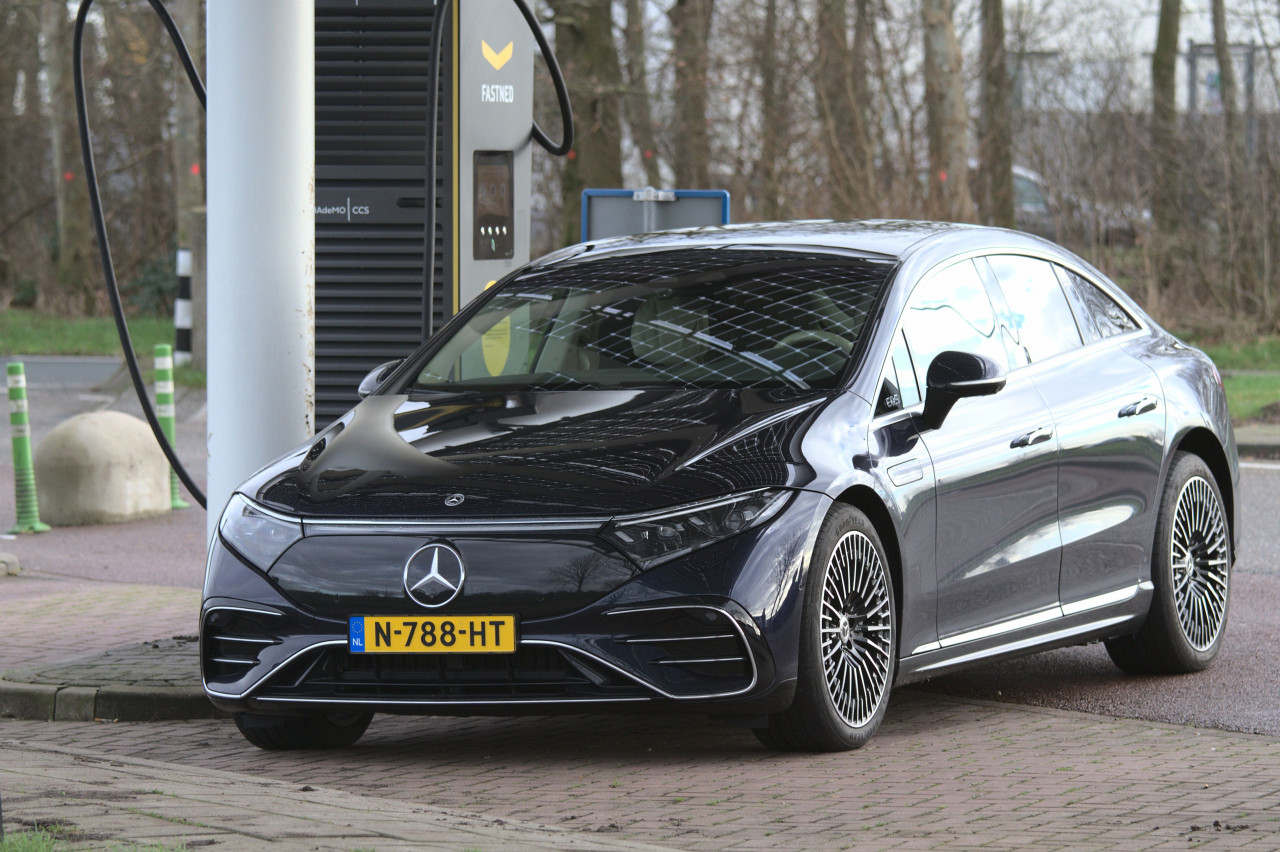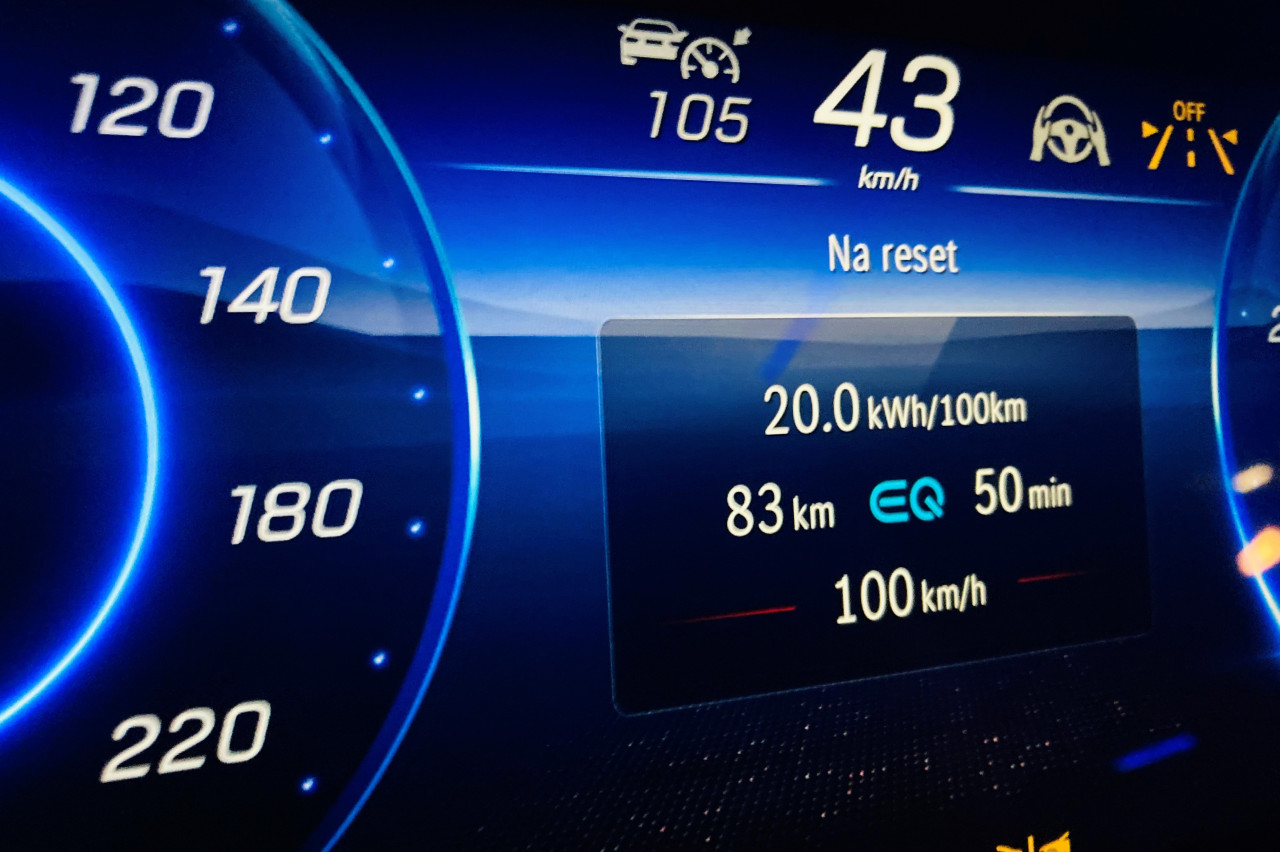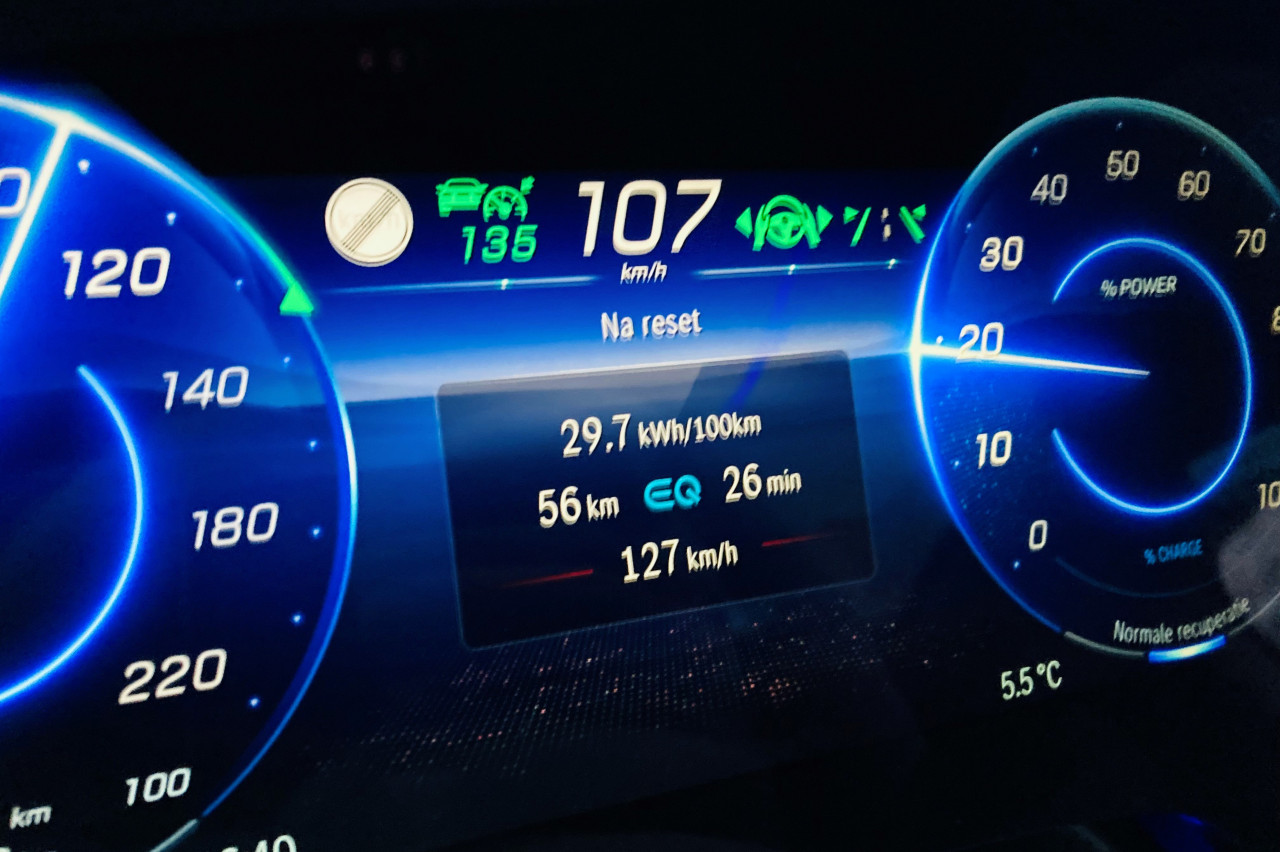If there is an electric car on the editorial board of Car Review we want to know what the range is at 100 km/h and 130 km/h. How does the Mercedes EQS (range: 651 kilometers) score? Well, that depends entirely on how fast you drive, because after seven, it is very inefficient at 130. While the EQS scores exemplary during the day.

In December 2021 we had the cheapest electric car to stay at Car Review: the Dacia Duster. This time we are looking for the other extreme. The Mercedes EQS 580 4Matic is one of the most expensive EVs on the Dutch market, with a starting price of 157,490 euros. As we have it – with a few options – it even costs 174,321 euros.
As the word 4Matic indicates, the EQS 580 has four-wheel drive. Its two electric motors together produce 523 hp and 855 Nm. It goes from 0 to 100 km/h in 4.3 seconds, so if you want, you can win almost every traffic light sprint in the Mercedes EQS. You will not be short of range either: the EQS 580 4Matic AMG Line driven by us must 651 kilometers can get far.
Is there a ‘cheaper’ alternative? Yes, of course. Mercedes also has an EQS 450+ in the price list, for at least 121,432 euros. The model is powered by the rear wheels and has a power of 333 hp and 568 Nm of torque. Less power, but more range. Between 631 and 731 kilometers, according to the WLTP measurement method.

Mercedes EQS: range at 100 km/h
Consumption of 19.1 kWh/100 km is stated for the EQS 580 4Matic AMG Line. And we come close to that. With the car in Comfort, the air conditioning at 20 degrees and the cruise control at 100 km/h, we achieve a very nice result: 20.0 kWh/100 km. That means that with the full 107.8 kWh battery of the EQS, a range of 539 kilometers is possible.
But why is that so far away from the specified range? Because there is a quirk in the WLTP numbers. That is the case with all electric cars. The official consumption never corresponds to the official range. If you really average 19.1 kWh/100 km with the EQS 580 AMG Line, you will not get 651 kilometers far, as stated, but ‘only’ 564 kilometers.

Mercedes EQS: range at 130 km/h
On a bleak Wednesday afternoon – 6 degrees, pouring rain – we aim the Mercedes star of the EQS at Oberhausen. On the way there, we are amazed at the high consumption of the luxury limo at 130 km/h: 29.7 kWh/100 km. So we sit down for another half hour on the way back. With the result: 29.7 kWh/100 km.
This means that at a constant speed of around 130, the EQS 580 will not go further than 363 kilometers. How is that possible? Although it is very heavy (2858 kilos), it also has the best aerodynamics of all cars (Cw value: 0.20). Maybe the weight starts to take its toll at higher speeds after all…
Want to stay informed about our latest range tests?
Subscribe to the Auto Review Newsletter
Conclusion
It was immediately clear that the Mercedes EQS would achieve an impressive range. It has the largest battery of all the electric cars we tested (which you can recharge with a maximum of 200 kW), and at a speed of 100 km/h it is very economical. If you drive 30 km/h faster, something will go wrong. A consumption of 29.7 kWh/100 km is on the high side.
Anyway, you may not expect better figures from a large chunk of car like the EQS. After all, his electric motors have to break almost 2900 kilos through the air and rolling resistance. In addition, there were EVs that scored worse in our range test. The Volvo XC40 Recharge for example, which swallowed no less than 32.9 kWh/100 km at 130.